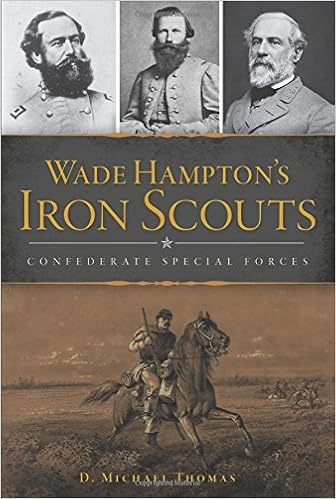
A week or so ago, I picked up a copy of D. Michael Thomas's Wade Hampton's Iron Scouts: Confederate
Special Forces, released by The History Press on March 5, 2018. Thomas's
tome follows a group of Confederate cavalry, made up of men from other
regiments, detailed to gather information on the movements of the Army of the
Potomac in late 1862 through 1865. The group, unofficially known as Hampton's
Iron Scouts, raided Federal picket posts and clashed with Federal cavalry
patrols, earning praise from Confederate leaders and the enmity of Federal
officers. Probably their most famous role came in the September 1864 Beefsteak
Raid. The scouts were the ones who found the cattle, notified Hampton, and guided
his cavalry force toward their prize.
While I have read deeply into the Army of Northern
Virginia's history, the role of scouts is something I have not read much about
(probably because, outside of Mosby, there is not a lot of information on the
subject). Thomas has done a superb job of scouring various sources to put
together a history of a neglected branch of the Confederate army. He not only
details their exploits, but provides brief biographical pieces on many of the
scouts. Hampton's Iron Scouts were largely men from South
Carolina regiments, but there were a few from other commands. Thomas identified
these Tar Heels: William M. Waterbury, 3rd NCC; James M. Sloan, 1st NCC; Julius
S. Harris, 1st NCC; and George J. Hanley, 1st NCC.
If you are interested in the fringe elements of the Army of
Northern Virginia, then Thomas's Wade
Hampton's Scout's is recommended.
No comments:
Post a Comment